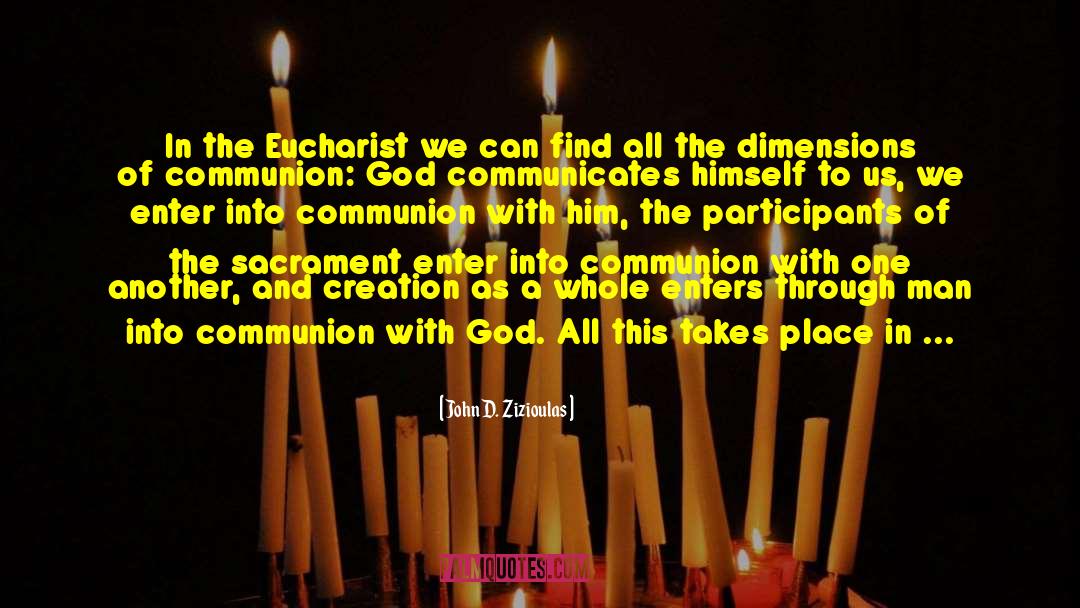John D. Zizioulas Famous Quotes
Reading John D. Zizioulas quotes, download and share images of famous quotes by John D. Zizioulas. Righ click to see or save pictures of John D. Zizioulas quotes that you can use as your wallpaper for free.
When man loves as a biological hypostasis, he inevitably excludes others: the family has priority in love over "strangers," the husband lays exclusive claim to the love of his wife - facts altogether understandable and "natural" for the biological hypostasis. For a man to love someone who is not a member of his family more than his own relations constitutes a transcendence of the exclusiveness which is present in the biological hypostasis. Thus a characteristic of the ecclesial hypostasis is the capacity of the person to love without exclusiveness, and to do this not out of conformity with a moral commandment ("Love thy neighbor," etc.), but out of his "hypostatic constitution," out of the fact that his new birth from the womb of the Church has made him part of a network of relationships which transcends every exclusiveness.
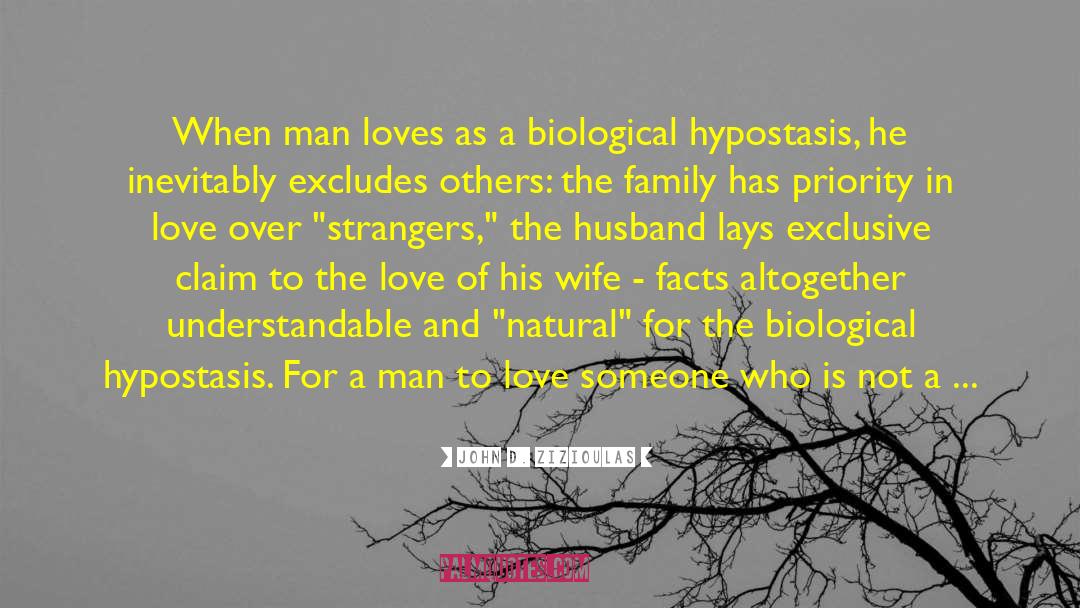
The truth of history lies simultaneously in the substratum of created existence (since all beings are the willed realizations of God's love); in the fulfillment of the future of history (since God's love, in His will and its expressions - namely, created existence - is identifiable with the final communion of creation with the life of God); and in the incarnate Christ (since on God's part the personification of this loving will is the incarnate Christ). Whereby Christ becomes the "principle" and "end" of all things, the One who not only moves history from within its own unfolding but who also moves existence even from within the multiplicity of created things, toward the true being which is true life and true communion.
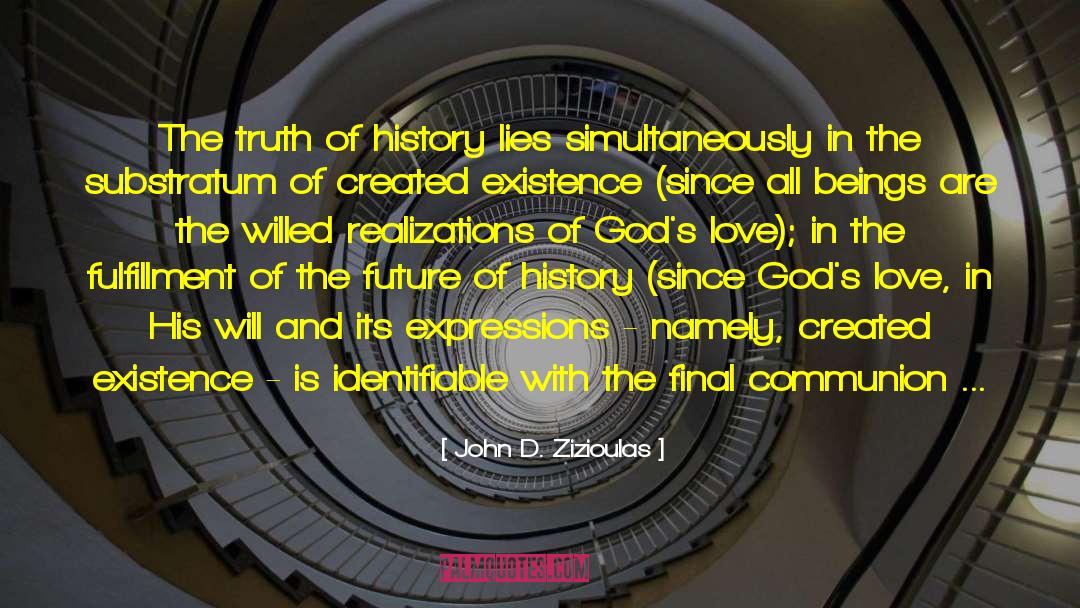
The person is otherness in communion and communion in otherness. The person is an identity that emerges through relationship; it is an 'I' that can exist only as long as it relates to a 'thou' which affirms it's existence and it's otherness. If we isolate the 'I' from the 'thou' we lose not only it's otherness but also it's very being; it simply cannot be without the other.
Personhood is freedom. In its anthropological significance, personhood is inconceivable without freedom; it is the freedom of being other. I hesitate to say 'different' instead of 'other', because 'different' can be understood in the sense of qualities (clever, beautiful, etc.), which is not what the person is about. Person implies not simply the freedom to have qualities, but mainly the freedom simply to be yourself.
And yet because, as we have already observed, one person is no person, this freedom is not freedom *from* the other but freedom *for* the other. Freedom thus becomes identical with *love*. We can love only if we are persons, that is, if we allow the other to be truly other, and yet to be in communion with us. If we love the other not only in spite of his of her being different from us but *because* he or she is different from us, or rather *other* than ourselves, we live in freedom as love and in love as freedom .
[In this way] personhood is creativity. Freedom is not *from* but *for* someone or something other than ourselves. This makes the person *ec-static*, that is, goin
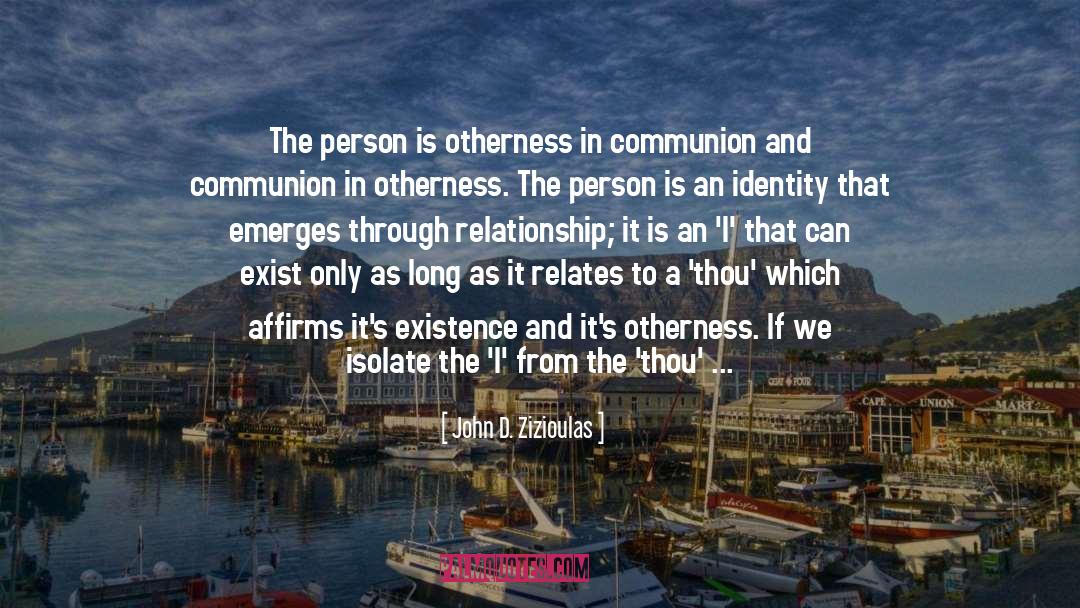
Culture cannot be a monolithically universal phenomenon without some kind of demonic imposition of one culture over the rest of cultures. Nor is it possible to dream of a universal "Christian culture" without denying the dialectic between history and eschatology which is so central, among other things, to the eucharist itself. Thus, if there is a transcendence of cultural divisions on a universal level - which indeed must be constantly aimed at by the Church - it can only take place via the local situations expressed in and through the particular local Churches and not through universalistic structures which imply a universal Church.
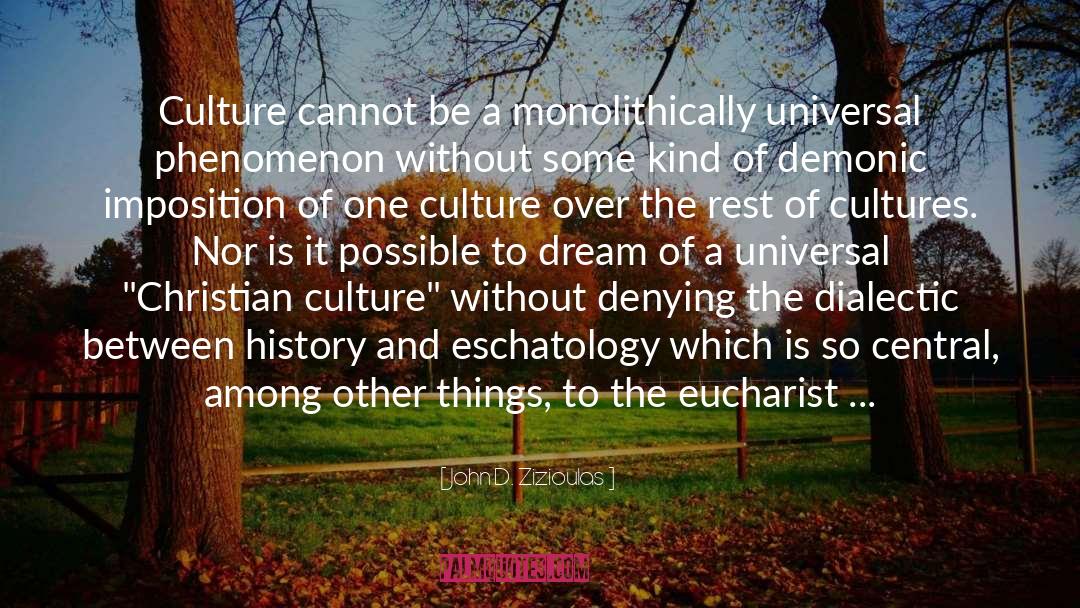
The question that preoccupied the Fathers was not to know if God existed or not - the existence of God was a "given" for nearly all men of this period, Christians or pagans. The question which tormented entire generations was rather: *how* he existed. And such a question had direct consequences as much for the Church as for man, since both were considered as 'images of God'.
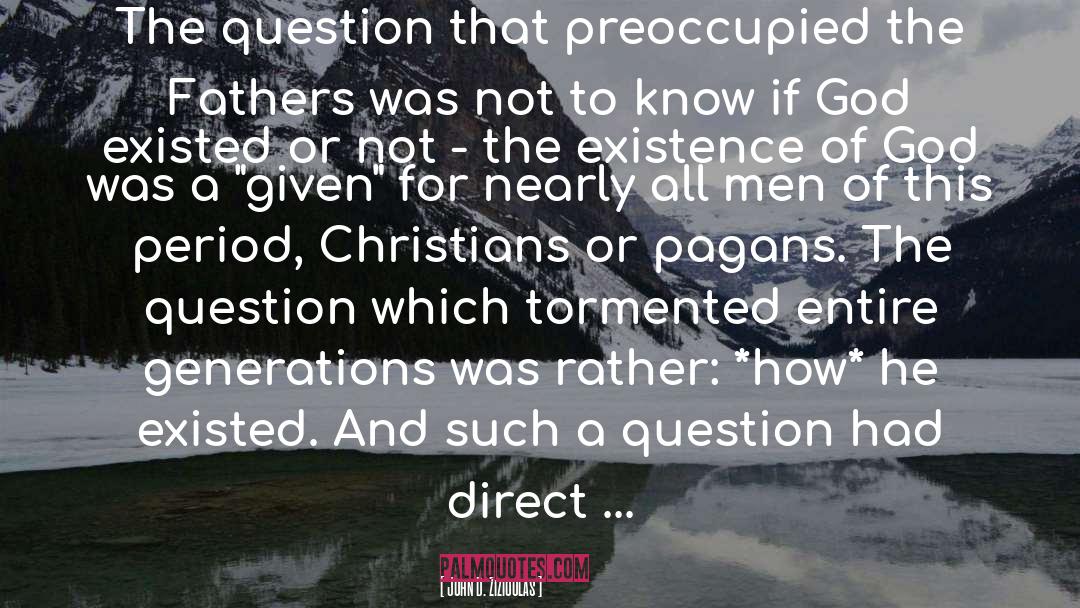
In the Eucharist we can find all the dimensions of communion: God communicates himself to us, we enter into communion with him, the participants of the sacrament enter into communion with one another, and creation as a whole enters through man into communion with God. All this takes place in Christ and the Spirit, who brings the last days into history and offers to the world a foretaste of the Kingdom.
